
Are you looking to enhance the beauty and functionality of your Chicago home? Window film can be a fantastic solution. With its numerous benefits and a wide range of options available, window film has become increasingly popular among homeowners in Chicago. In this comprehensive guide, we will explore the transformative power of window film, its various types, factors to consider, the installation process, and maintenance tips.
The Ultimate Guide to Home Window Tinting in Chicago
Chicago is a city known for its stunning architecture and diverse neighborhoods. Homeowners in the Windy City are constantly seeking ways to improve their homes, and window film offers a practical and effective solution. Whether you want to enhance your privacy, reduce energy consumption, protect your furnishings, or add a decorative touch, window film can help you achieve your goals. This comprehensive guide aims to provide you with the necessary information to make informed decisions about window film for your Chicago home.
Benefits of Window Film
Window film offers numerous advantages for homeowners in Chicago. Here are some key benefits:
- Increased energy efficiency: Chicago experiences both hot summers and cold winters. Window film can act as an insulator, reducing heat transfer during the summer months and heat loss during the winter, leading to lower energy consumption and utility bills. With window film, you can save up to a whopping 30-40% on your monthly electric bill. It’s like magic, but it’s real!
- Protection against harmful UV rays: Window film blocks a significant portion of UV rays, which can cause furniture, flooring, and artwork to fade over time. By installing window film, you can preserve the vibrancy and longevity of your interior furnishings.
- Enhanced privacy without sacrificing natural light: Privacy window film allows you to enjoy natural light while keeping prying eyes at bay. This is especially valuable for ground-floor rooms, bathrooms, and bedrooms.
- Reduction of glare: Glare can be a nuisance, particularly if you have large windows or live in an area with direct sunlight. Window film can significantly reduce glare, providing you with a more comfortable living environment.
- Added safety and security: Window film adds an extra layer of protection to your windows. It can help hold shattered glass together in case of an impact, making it more difficult for intruders to enter your home.
Types of Window Film
There are several types of window film available, each with its specific functions and features. Here are three common types:
- Privacy Window Film: Privacy window film is designed to offer homeowners in Chicago increased privacy while still allowing natural light to enter. It can be used in bathrooms, bedrooms, or any areas of your home that are exposed to prying eyes. Privacy window film comes in various styles, from frosted to textured, offering different levels of opacity and design options.
- Solar Control Window Film: Solar control window film is an excellent choice for Chicago homes, especially during the hot summer months. It helps reduce heat and glare, making your home more comfortable while also improving energy efficiency. By blocking a significant portion of the sun’s heat, solar control window film can help keep your interiors cooler and reduce your reliance on air conditioning.
- Decorative Window Film: If you’re looking to add style and character to your Chicago home, decorative window film is the perfect choice. It allows you to create frosted patterns, stained glass effects, or custom designs. Decorative window film offers versatility and can be used to enhance the aesthetics of any room, giving it a unique and personalized touch.
Factors to Consider
Before choosing window film for your Chicago home, there are several factors you should consider:
- Climate and Weather Conditions: Chicago experiences a wide range of weather conditions, from cold winters to hot and humid summers. It’s essential to choose window film that can withstand these extremes. Look for films that are specifically designed for all-season performance, capable of handling temperature fluctuations and weather changes without peeling or discoloring. A good option for the Chicago area is low-e window film.
- Home Architecture and Design: Consider the architectural style and interior design of your home when selecting window film. The film should complement the existing aesthetics and blend seamlessly with the overall look. Take into account factors such as window size, shape, and frame material to ensure a harmonious result.
- Desired Functionality: Identify your primary goals and needs for installing window film. Do you prioritize privacy, solar control, or decorative elements? Understanding your desired functionality will help you choose the right type of film for each specific area of your home.
Maintenance and Care
Proper maintenance is essential to prolong the lifespan and effectiveness of your window film. Follow these tips:
- Use non-abrasive cleaning solutions and soft cloths when cleaning the film. Avoid using sharp objects or abrasive materials that could scratch or damage the film.
- Regularly inspect the film for any signs of wear or damage. If you notice any issues, such as peeling or bubbling, consider contacting a professional for repairs or replacement.
Frequently Asked Questions
Here are answers to some common questions homeowners in Chicago may have about window film:
- Is window film easy to remove? Yes, most window films can be easily removed without causing damage to the glass. However, the process may vary depending on the type of film and the length of time it has been installed. It’s recommended to follow the manufacturer’s instructions or seek professional assistance for safe removal.
- Can window film be applied to double-pane windows? Yes, window film can be applied to double-pane windows. However, it’s important to choose films that are specifically designed for such windows and ensure proper installation to avoid any seal or thermal insulation issues.
- How long does window film typically last? The lifespan of window film depends on various factors, such as the quality of the film, the installation process, and maintenance. In general, high-quality window film can last for 10 to 15 years or more with proper care.
- Will window film affect my view? No, window film is designed to be transparent and should not significantly impact your view. However, certain types of film, such as privacy or decorative options, may alter the level of opacity or distortion.
- Can window film be applied to textured glass? Yes, window film can be applied to textured glass. However, the level of adhesion and the final appearance may vary depending on the texture. It’s advisable to consult with a professional to ensure a proper application.
Call Window Film Chicago Today to Transform Your Home!
Window film has the power to transform your Chicago home, enhancing its aesthetics, energy efficiency, privacy, and overall comfort. Whether you choose privacy, solar control, or decorative window film, the benefits are numerous. By considering the climate, architectural style, and your specific needs, you can select the right window film to meet your requirements. With proper installation and maintenance, you’ll enjoy the advantages of window film for years to come. Invest in window film today and take your Chicago home to the next level of beauty and functionality. Call today to get started!

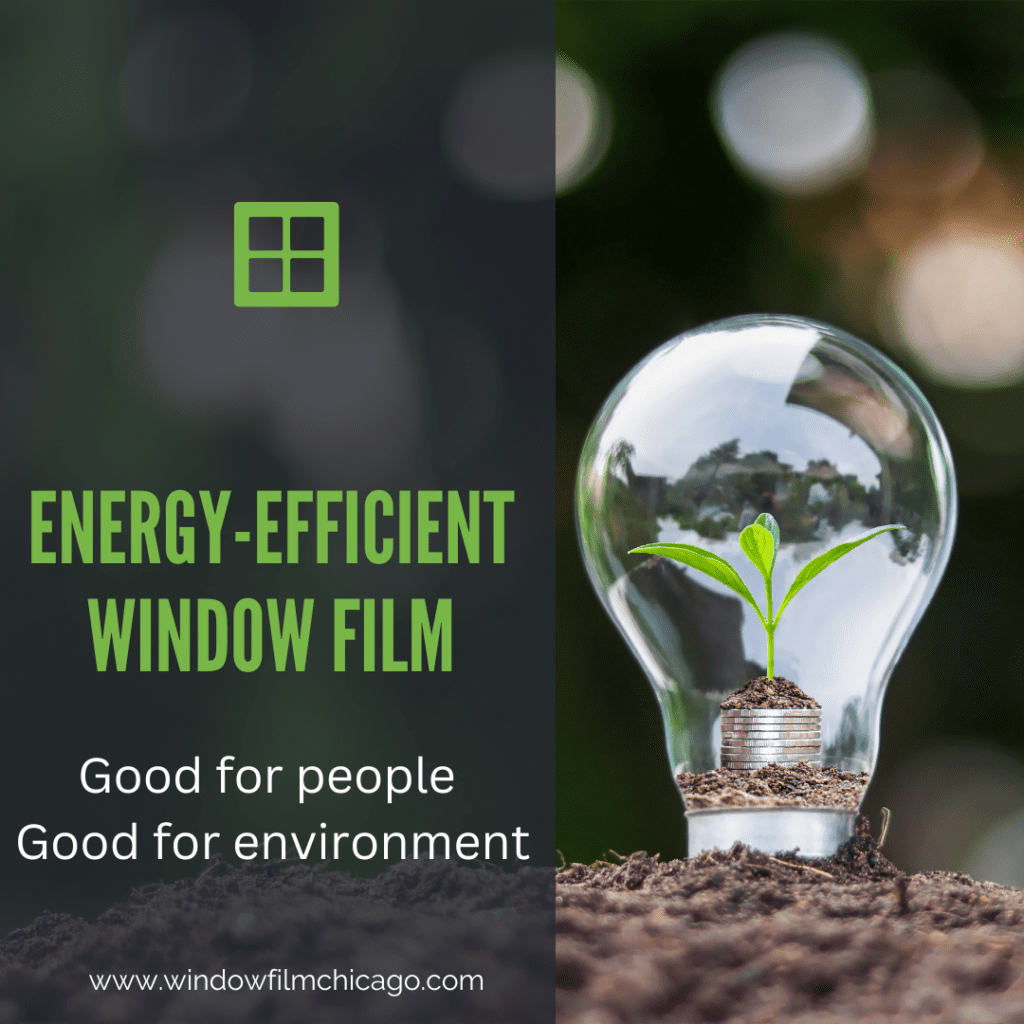
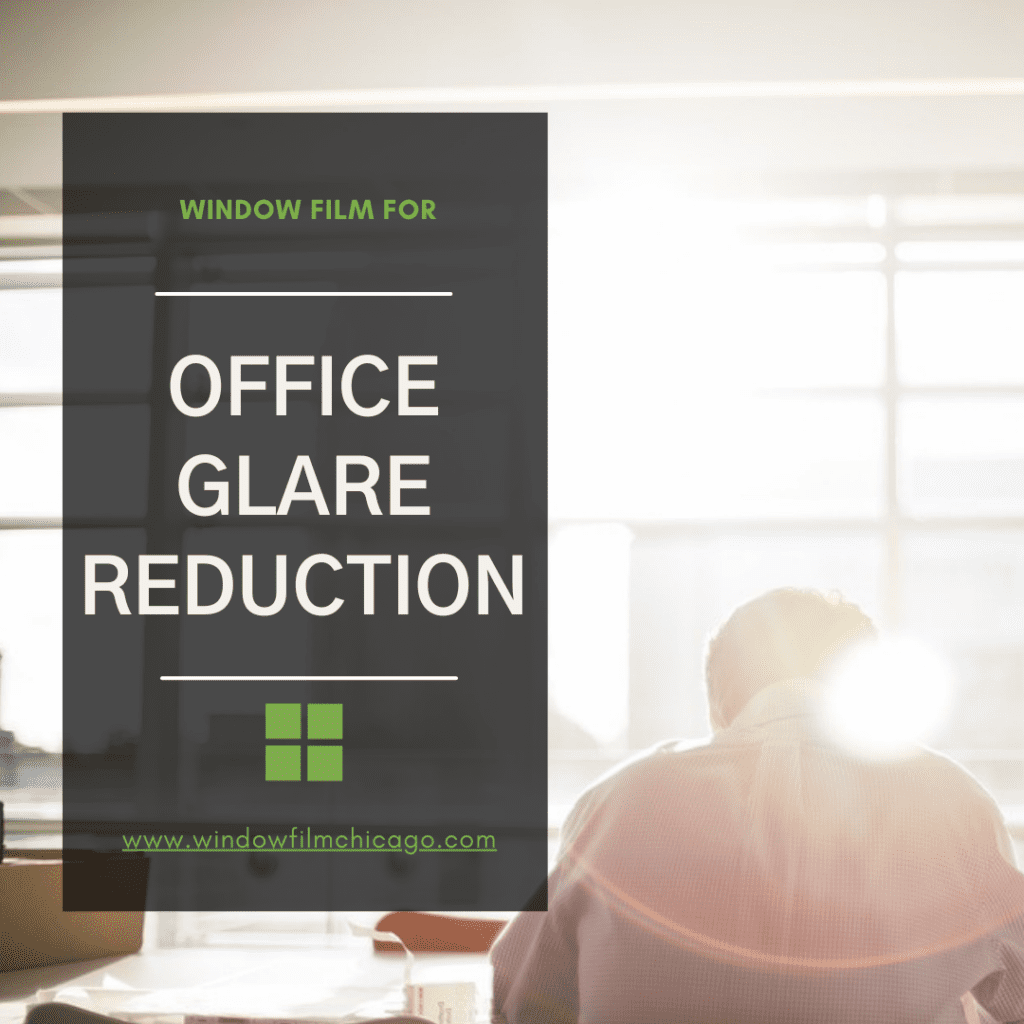
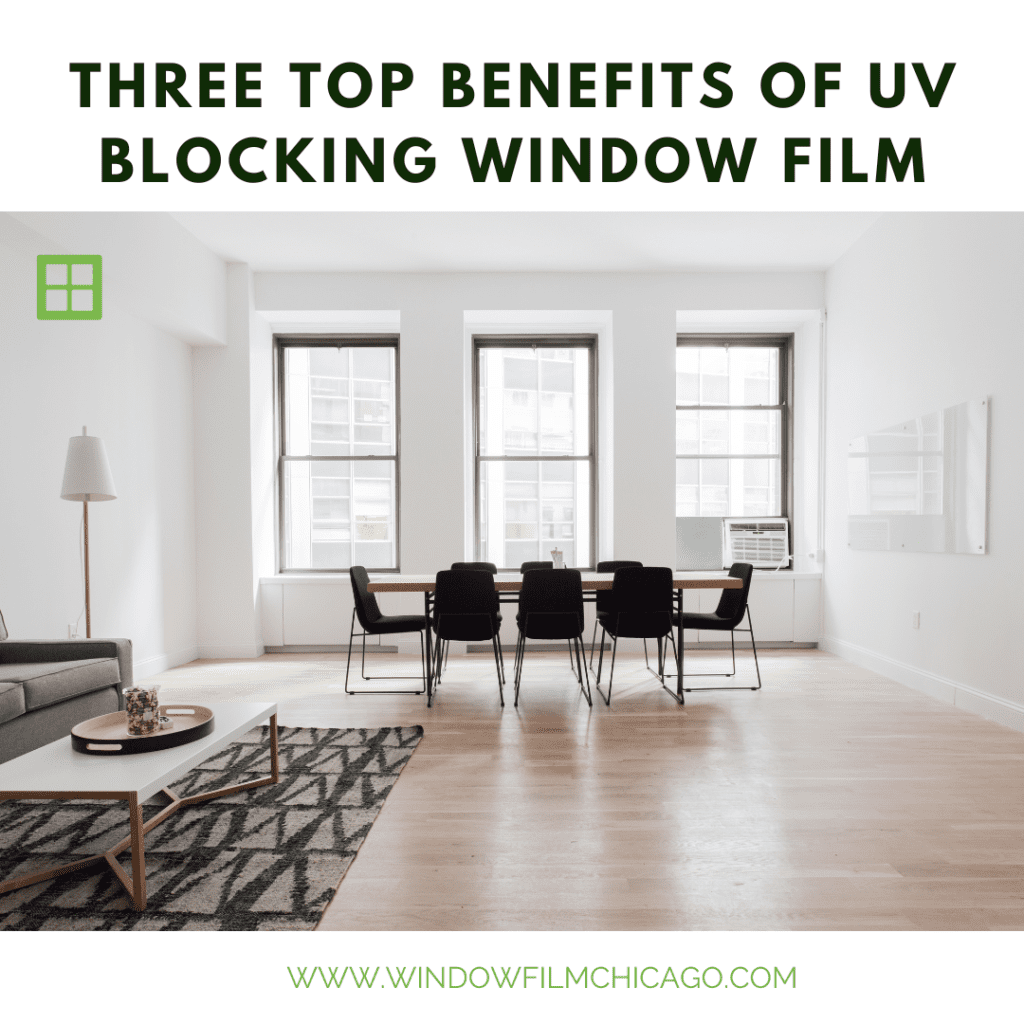
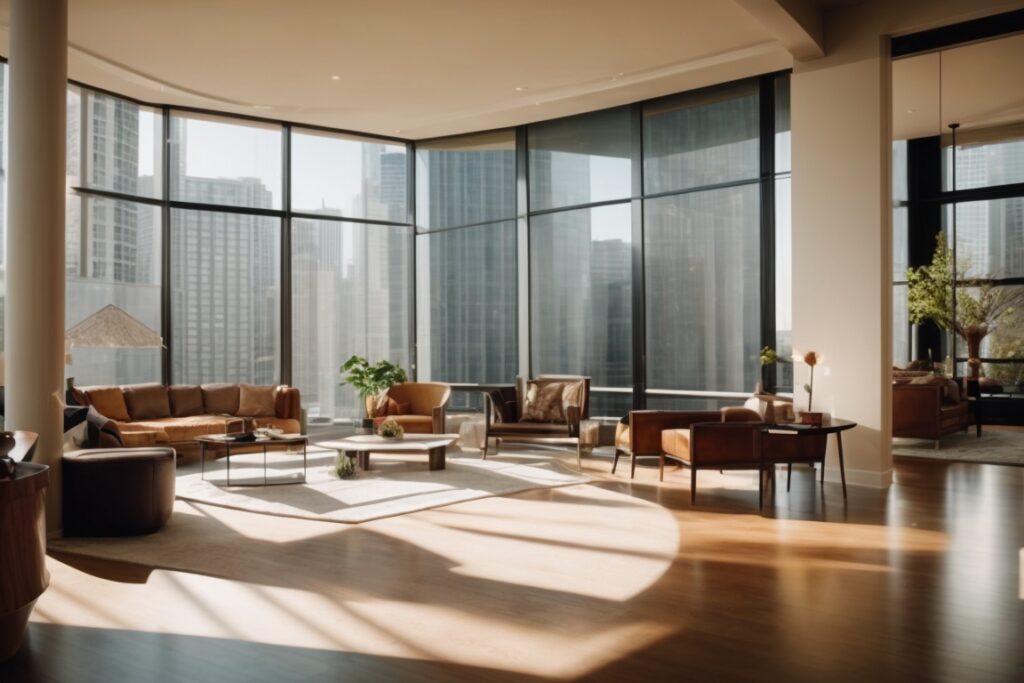
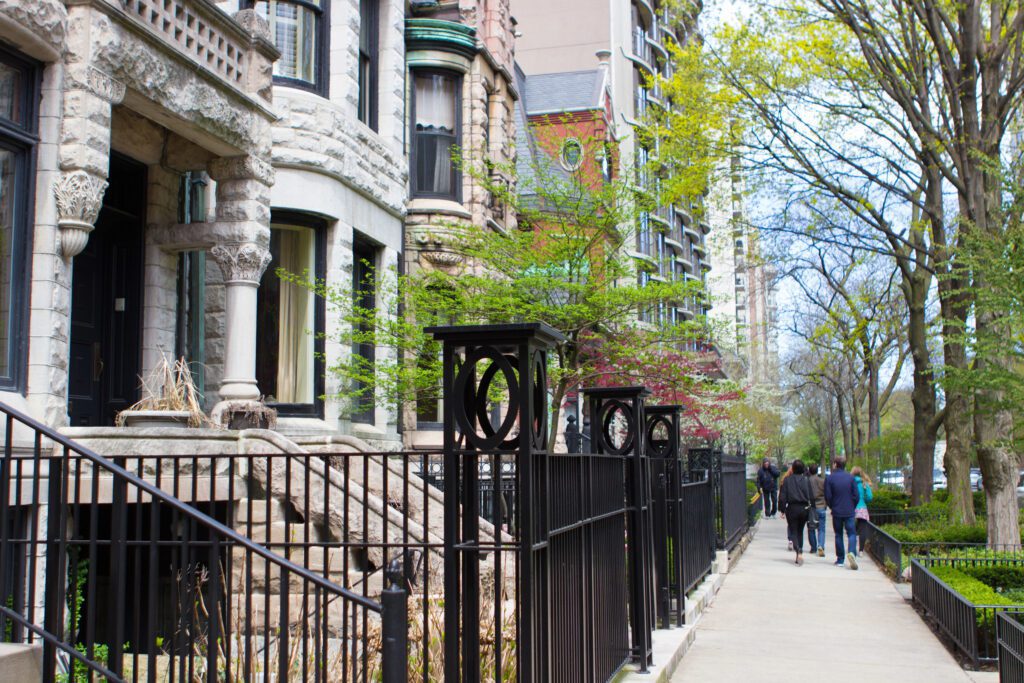
About The Author: Mike Kinsey
Mike Kinsey has more than a decade of experience installing window film in the Chicago area. His years of experience have allowed him to develop a deep familiarity with all of the different types and styles of window film on the market including the various security, privacy, decorative, and energy efficient options. Together, he and his team have completed hundreds of commercial and residential installs, totaling an accumulation of over 250,000 square feet. In addition to being an expert on top brands such as LLumar, C-Bond, HDClear, Solar Gard, Solyx, and Huper Optik, Mike is also certified by 3M, EnerLogic, and AIA for continuing education.
More posts by Mike Kinsey